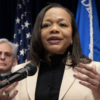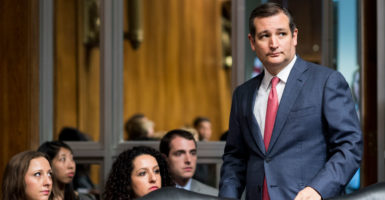As Sen. Ted Cruz convened a hearing intended as a platform to criticize how President Barack Obama talks about Islamist extremism, news broke of suicide bombers attacking an airport in the capital of America’s NATO ally, Turkey.
While families of the 41 people murdered in Turkey mourned, and world leaders and politicians expressed condolences, there was also a rush to try to define the event, which bore the hallmarks of an operation carried out by the Islamic State terrorist group.
With the Islamic State, also known as ISIS or ISIL, expanding its influence outside the territory it controls in Syria and Iraq, and inspiring attacks throughout the world, the debate over how to talk about terrorism has become more complex and intense.
To the Obama administration, the Cruz-led hearing in Washington was an example of what it views as a counterproductive focus on semantics that distracts from the mission of defeating terrorism.
But for Cruz, R-Texas, among other critics, the administration’s policy of not using the term “radical Islamic terrorism” underemphasizes the seriousness of the threat and showcases a weak counterterrorism strategy that isn’t stopping massacres like the one in Turkey.
“We cannot combat and defeat radical Islamic terrorism without acknowledging it exists and directing our resources to stopping it,” Cruz said at his Senate Judiciary oversight subcommittee hearing Tuesday.
“And an Orwellian doublethink that seeks to excerpt any reference to it, as the administration did to the president of France, or erase pledges of allegiance to ISIS, as the administration did with the Orlando terrorist, is counterproductive to keeping this country safe.”
Cruz was referring to the FBI’s original decision to issue a transcript of a 911 call from the Orlando nightclub attacker, Omar Mateen, that removed references to ISIS and the group’s leader, Abu Bakr al-Baghdadi.
The Texas Republican also referenced how the Obama administration handled its communication of remarks by French President Francois Hollande after the Paris terrorist attacks in November.
Though the FBI reversed itself in the Orlando case, and eventually released a complete transcript that included Mateen’s mentions of ISIS, Cruz accuses the Obama administration of making a deliberate effort to “purge” law enforcement and intelligence material to remove references to Islamist terrorism.
Cruz has made the point repeatedly for more than a year. What he views as an overt attempt at political correctness, however, the administration considers to be smart policy intended to not overgeneralize the ISIS threat and legitimize the terrorist group’s extreme interpretation of Islam.
“What exactly would using this label accomplish? What exactly would it change?” Obama said shortly after the Orlando attack. “Would it make ISIL less committed to trying to kill Americans? Would it bring in more allies? Is there a military strategy that is served by this? The answer, is none of the above. Calling a threat by a different name does not make it go away. This is a political distraction.”
Two top Justice Department counterterrorism officials declined invitations to Cruz’s hearing, so Democrats such as Sen. Chris Coons of Delaware were left to speak for them.
“I utterly reject the notion that there is some sort of political correctness preventing us from fighting our enemies,” Coons said.
He noted that the U.S.-led military campaign against ISIS has included more than 13,000 airstrikes and resulted in the recapture of more than half the terrorist group’s territory in Iraq, and nearly a quarter of it in Syria.
“The president has condemned the threat of ISIS and taken decisive action,” Coons said, adding:
We can and must defeat terrorism without sacrificing our constitutional principles. [To] blame over a billion Muslims for the twisted actions of an extremist few only serves to divide Americans, alienate the Muslim world, and legitimize the murderous groups who falsely claim to speak for Islam. This makes us less safe.
Muslim Americans who spoke at Cruz’s hearing were split on how to talk about the Islamist terrorist threat.
Zuhdi Jasser, president of the Arizona-based American Islamic Forum for Democracy, argues his fellow moderate Muslims need to actively define what their faith stands for.
“I would tell you as a Muslim, we demonize Muslims by letting Islamists speak for the religion,” Jasser said:
It is foolhardy to refuse to acknowledge the role of political Islam. A national security policy of refusing to say Islam has a problem is dangerous. Treat us [Muslims] with tough love, hold us accountable, and bigotry will melt away because [critics] will see us as essential in this fight.
Farhana Khera, president and executive director of Muslim Advocates in Oakland, California, countered that the process of radicalization in the age of ISIS is nuanced. She pointed out that the profiles of recent terrorists do not fit a neat category.
“We don’t believe there is somehow a pathway to radicalization,” said Khera, who is Muslim, adding:
We know extremist violence takes many forms, and national security experts say the common threat is vulnerable individuals seeking a sense of purpose. There are some people where ideology is a part of it, but it is not the causation for what causes people to engage in terrorism.
























